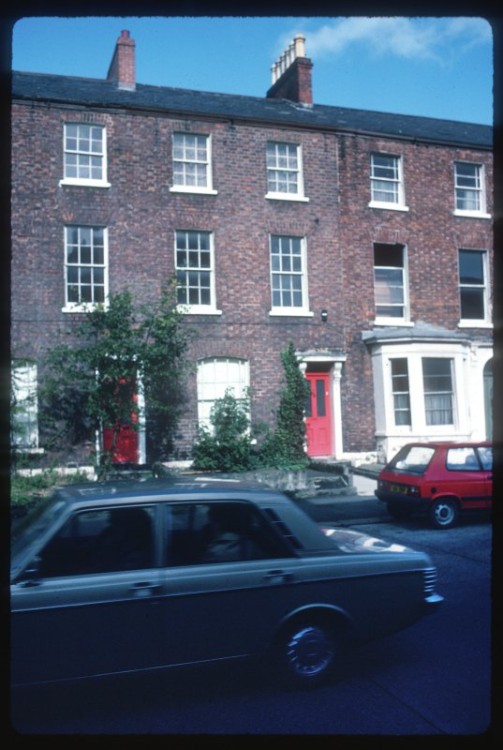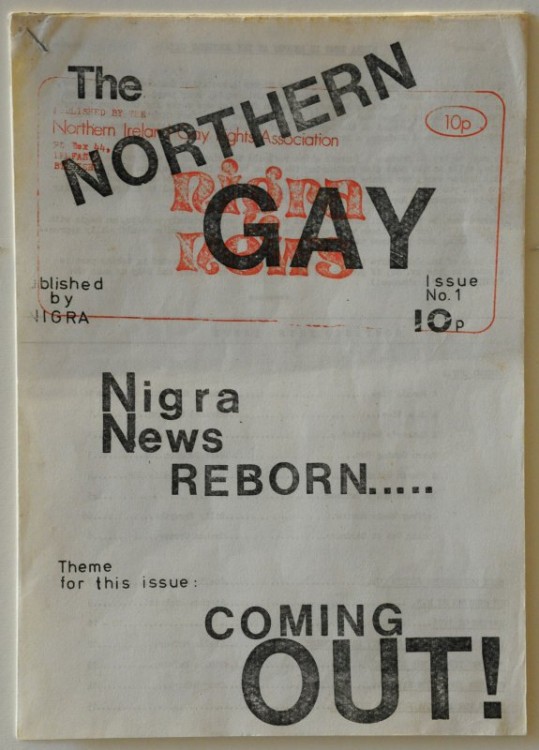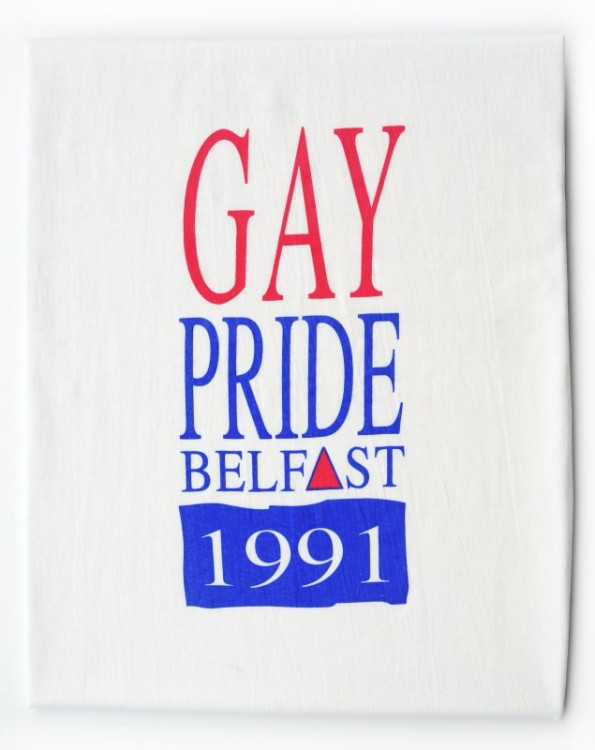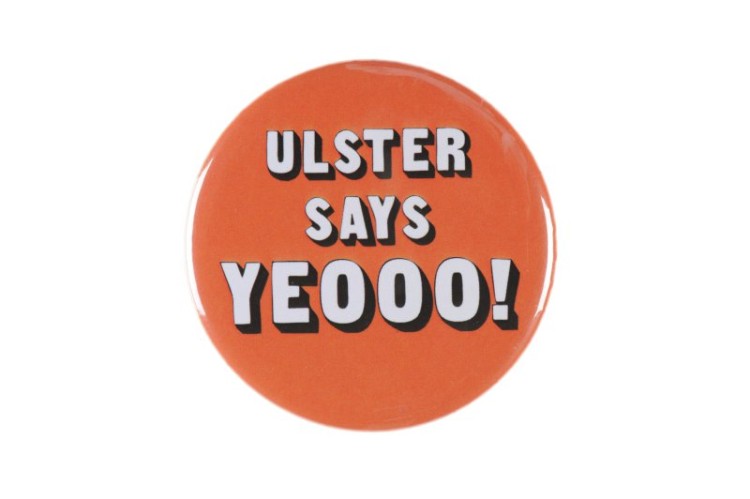LGBTQ+ Collection
Our mission is to tell the unique human story of Northern Ireland. This includes everyone’s stories. We want to ensure LGBTQ+ voices are heard and represented in our museum, to do so we have made expanding our LGBTQ+ collection a priority.
The history of the LGBTQ+ community in Northern Ireland has at times been difficult, and for centuries many people have faced discrimination and violence.
Within our collection we have stories of activists, who in the face of these challenges have worked tirelessly to campaign for legal changes. There are also stories that many would not at first perceive to be connected with an LGBTQ+ individual.
Due to laws, historical attitudes or societal pressures of the time, some figures in history may not have felt able to openly proclaim their sexuality. Relationships took place in secret, and so these aspects of their lives have remained hidden for years. Alongside the numerous hardships, there are many beautiful stories of love, friendship, partnership and pride.
From events such as David Hoyle’s Queer History Tour of the museum as part of the Outburst Arts Festival in 2014, to hosting the launch of the NLHF funded LGBT History Project in 2020, our museum is a space for everyone in Northern Ireland to enjoy and feel included.
LGBTQ+ stories have been under-represented in museums in the past, and it is vital that we continue to take action and change this.
Let’s take a closer look at some items from our collection.
LGBTQ+ Collection
4 University Street
4 University Street, or ‘Number 4’ as it became known, served as the gay centre for Belfast from early in 1977 to October 1983. The vacant and derelict house was ‘loaned’ to the Gay Liberation Society by Queen’s University Belfast.
It housed the Cara-Friend helpline as well as other LGBTQ+ organisations. This helpline still runs today, though Cara Friend is now based in Waring Street. The organisation works to support the community in a range of ways, from work with regional LGBTQ+ youth groups across the country to delivering awareness training, along with policy and advocacy work.
Northern Gay NIGRA News
In 1967 the British Government passed the Sexual Offences Act, but only extended its remit to England and Wales. In the face of rising discrimination, the Northern Ireland Gay Rights Association was born.
Their publication, Northern Gay NIGRA News, cost just 10p and covered issues such as the campaign for decriminalisation, the establishment of the Pride parades in the 1990s and advice for young LGBTQ+ people. The theme for this first issue is 'Coming Out'.
After campaigner Jeff Dudgeon was arrested and interrogated by the RUC during the mid-1970s, he filed a complaint with the European Commission of Human Rights, who ruled it a human rights violation. The Homosexual Offences Order 1982 officially brought decriminalisation to Northern Ireland.
Gay Pride Belfast, 1991
The first ever Pride in Belfast was held in 1991, and has since grown to be celebrated across the country, with celebrations in Derry/Londonderry and Newry in 2019. Pride even went online during the 2020 Covid-19 pandemic.
Amongst our collection are t-shirts from each Pride parade since 1991, and a variety of programmes. In the early years, celebrations were relatively small scale, with interested participants encouraged to simply meet for dinner. By 2005 the programme had advertising support and large scale events. In 2019, over 1 million people came out to show support and pride for the LGBTQ+ community, making it the biggest parade in Northern Ireland that year.
Ulster Says Yeooo! Badge
This pin was made by visual artist and illustrator James Ashe to show support for the equal marriage campaign. Equal marriage has been an important focus for LGBTQ+ activists in Northern Ireland, particularly as same-sex marriage began to be legalised elsewhere.
Since 2014, LGBTQ+ couples in England, Scotland and Wales have had the right to get married. In 2015 the Republic of Ireland also passed legislation after their marriage equality referendum. Love Equality was formed in 2016 as an advocacy organisation created by Rainbow Project, ICTU, NUS-USI, Amnesty International, Cara Friend and Here NI. These groups worked together with community activists across the UK and Ireland to lobby political parties to back change in the marriage law in Northern Ireland.
After the 2017 collapse of the Stormont Assembly, Labour MP Conor McGinn introduced an amendment to the same-sex marriage legislation under the Northern Ireland (Executive Formation) Act 2019, which passed successfully. The first same-sex wedding in Northern Ireland took place on 11th February 2020 in Carrickfergus. Items like this is in our collection represent the hard work of the many people who protested and campaigned tirelessly for everyone to have the right to marry someone they love.
Future of the Collection
At the Ulster Museum, we’re always adding to our collection and it is a key priority for us to continue our work in expanding our LGBTQ+ collection. The material we currently hold is quite rights focused and dates mainly from the 1970s. We would like to develop our collection to include earlier LGBTQ+ history and more personal experiences and we are keen to collect more items representing women and the trans community.







